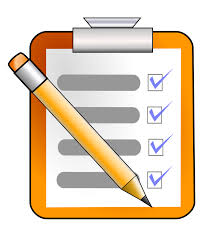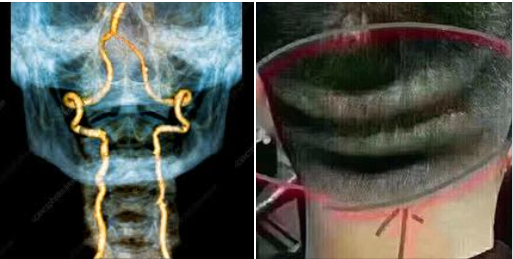
What is Acupuncture and how does it work?
Acupuncture involves the insertion of fine, sterile single use needles into specific spots to stimulate the body to heal itself. Traditional explanations of acupuncture involve its effect on improving the flow of qi (‘vital air/energy’ and referred to as ki by the Japanese) and on balancing Yin and Yang, a paradigm of health and disease that maps very closely to the Western concept of homeostasis. By stimulating specific points on the body with heat, pressure, or very fine needles, acupuncture practitioners are able to restore healthy function, thus resolving symptoms and reversing disease.
What does Acupuncture Treat?
Acupuncture can be used to treat nearly any condition because we focus the treatments on the root of the disease, not just symptoms. Acupuncture works by helping the body regain its balance (homeostasis). When the body is balanced, symptoms and disease processes are alleviated.
How Many Treatments Will I Need?
Each patient is unique, but generally the initial phase of the treatment plan is between 6-8 visits 1-3 times per week. After that time, we will reassess to gauge your progress and begin to space treatment out further apart to every other week, monthly, seasonally, or whenever you feel you need a boost or if something else comes up.
Our goal is to get your body back to a state of balance where it can maintain itself without frequent treatment. However, some patients enjoy weekly or bi-weekly treatment as part of a self-care routine for relaxation and preventative care once they have addressed and balanced their chief concern.
Keep in mind that acute conditions generally respond to treatment faster than more chronic conditions. Also, acupuncture treatment builds upon itself, and is better thought of as a ‘dose’ or ‘course’ of treatment. If you are prescribed a course of antibiotics by your doctor, you wouldn’t take just one of the pills and expect full recovery. Acupuncture works in a similar manner. While many do see and feel a difference during the first session, it’s imperative to stick to your treatment plan to see steady, long lasting results and achieve faster healing. You can’t go to the gym one time and expect to be ripped, but just like exercise, some acupuncture is better than none!
what is a healing crisis?
most practitioners of chinese medicine do, however, understand that patients may experience a ‘healing crisis’ after a treatment. a healing crisis is similar to point above in that patients often feel temporarily worse for 12-48 hours and then better than before they had the treatment. a healing crisis may be an important part of a patient’s healing process.some typical characteristics of a healing crisis are as follows:
- it usually has a rapid onset
- although the symptoms may be severe, the patient is not brought down by them and she or he retains a sense of well-being throughout the reaction
what is The Law of care?
the law of cure states that during the course of treatment some patients will experience their symptoms:
- moving from the inside out. for example, a patient can bring up phlegm as it is cleared from their system. patients often feel better ‘in themselves’ before their symptoms start to clear
- moving from above to below. for example, a pain may travel down a limb as it gets better until it clears from the extremities.
- recurring in the reverse order from which they appeared. for example, a patient may briefly experience a recurrence of some emotion or symptom from a past trauma before feeling better.this should only last from 24 to 48 hours after the treatment and after this the patient should feel better than before having the treatment.

The Causes of Disease:
Diseases arise from inside people and external environment directly affect the organs and elements. They are anger, joy, sadness, over-thinking, grief, fear and shock. they external causes of disease are due to climatic conditions. they are wind, cold, damp, dryness, summer heat and fire.the miscellaneous causes are predominantly linked with a person’s life-style. they are poor constitution, overwork and fatigue, too much or too little exercise, diet, sex(too much or too little), trauma, parasites and poisons and incorrect treatment.

Some of the more common conditions acupuncture can treat are: Musculoskeletal/Neurologica *Arthritis *Back Pain *Bell’s Palsy *Carpal Tunnel *Chronic Fatigue *Dizziness *Fibromyalgia *Headaches *Migraines *Knee Pain *Neck Pain *Shoulder Pain *Neuropathy *Sciatica *Shingles *sports Injuries *Trigeminal Neuralgia *TMJ Digestion *Abdominal Pain *Colitis *Constipation *Diarrhea *Gas/Bloating *Gastritis *IBS *Indigestion *Nausea Emotional/Mental *Anxiety *Bipolar *Depression *Insomnia *Sleep Disorder *Stress *Worry Reproductive/Gynecologocal *Infertility *Low Libido *Menopause *Morning Sickness *Irregular Periods *PMS *UTI Respirotory/ENT *Allergy *Asthma *Bronchitis *Colds *Earaches *Eye Issues *Rhinitis *Flu *Sinusutis *Sore Throat *Tinnitus Other *Fatigue *Weight Loss *Cosmetic *Cancer support ( nausea/vomiting from chemo and radiation ) Addictions/Habits *Smoking *Alcohol *Food Cravings

Vertebral Artery Insufficiency
Potential Transient Ischemic Attack (TIA) or Mini Stroke because block artery cause not enough blood support brain.
You may feel suddenly mental confuse, finger numbness, suddenly blurry vision, unclear speech, loose balance, suddenly severe headache that never happen before.